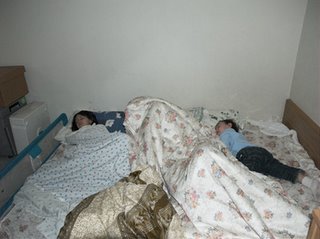
夫妻真愛之旅 A Family Conference Cruise
We went on a cruise with a Chinese Christian family group真愛家庭協會. We were about 150 people scattered throughout several decks of the ship. I have heard discussed family issues many times from similar American groups and so I was looking forward to seeing the differences. Also, we went with some friends from our house group at church and that makes it a lot more fun.
The first night they talked about the statistics of divorce and how marriages need
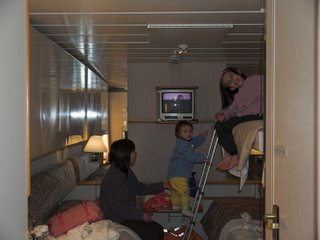 strengthening. Then they took a poll of how long the marriages were together. They ranged from newlyweds at 6 months to an elderly couple who were together for 49 years. We were on the shorter end with 7 years.
strengthening. Then they took a poll of how long the marriages were together. They ranged from newlyweds at 6 months to an elderly couple who were together for 49 years. We were on the shorter end with 7 years.It seems that the biggest problem they dealt with was “growing apart” in a marriage. So, the exercises we dealt with were designed to aid in understanding our spouses more…”the language of love,” and that sort of thing. Apparently, one person or the other just walking out on a marriage was not as big a problem in Chinese culture, but like everywhere in the modern world busyness can be an issue
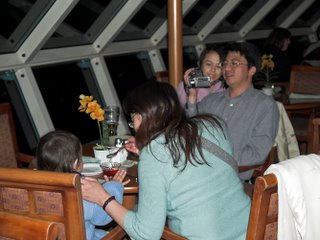 in weakening relationships. In one of the sessions, there was also a film which told a story about God brought a challenge into one marriage that a husband and wife had to pull together to overcome. Everything was done in families and in groups, no one was made to feel "left out."
in weakening relationships. In one of the sessions, there was also a film which told a story about God brought a challenge into one marriage that a husband and wife had to pull together to overcome. Everything was done in families and in groups, no one was made to feel "left out."The 1st photo on top is of the deck late at night. A hand held photo without flash, now that is high speed digital photography! The 2nd photo is of our "luxury" room, but to be fair it was clean, roomy enough and we were as a family able to spread out over 2 rooms. The 3rd photo is of friends doing a good job feeding our little one with our daughter supervising in the background. He enjoys it when the spoon becomes an airplane and dive bombs vegetables into his mouth.








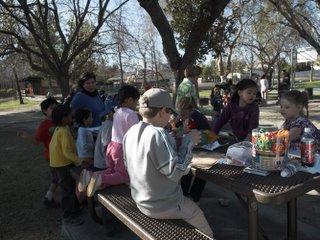



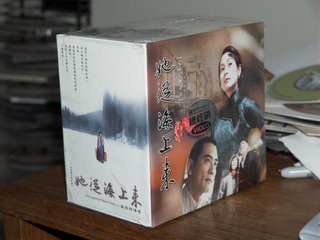
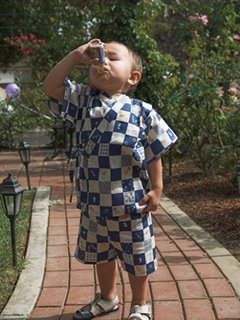
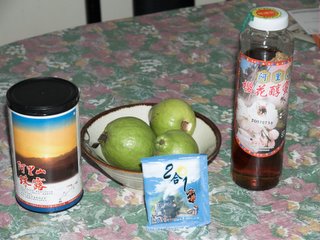
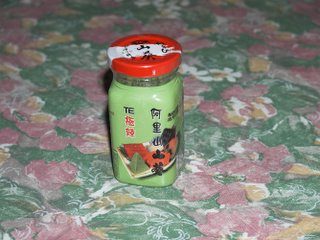
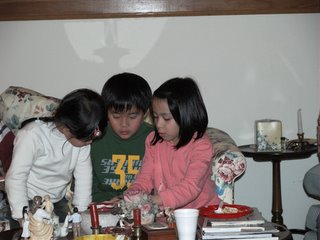
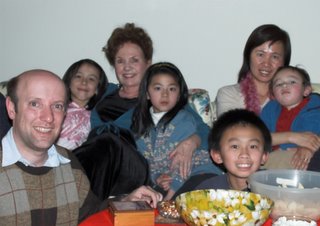 dreaming of the piece of dark chocolate cake upstairs he hoped to plunge himself nose first into.
dreaming of the piece of dark chocolate cake upstairs he hoped to plunge himself nose first into.


